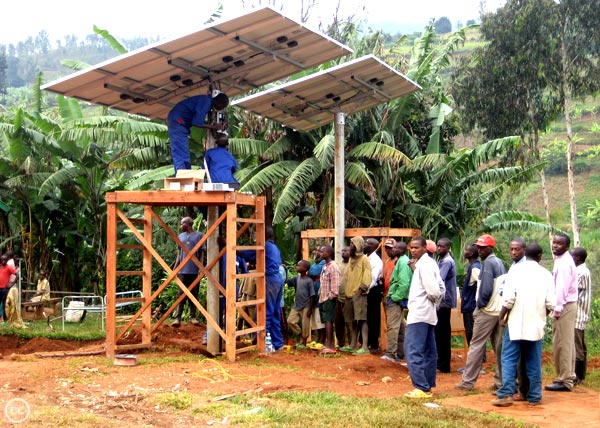Talking Points on Climate Change and the Environment
Watch eloquent short video by Archbishop Desmond Tutu
"The destruction of the earth’s environment
is the human rights challenge of our time."
-
Global warming and environmental damage from the
fossil-fuel industry already affect all of us, although responsibility
lies primarily with the rich industrialized countries and the newly
industrializing powers. Africa is the most vulnerable continent,
but extreme weather and sea-level rise have hit New Orleans and
New Jersey as well as Lagos.
-
When industries make decisions based on short-term profits,
encouraged by government subsidies to established industries, they
systematically discount damages from "externalities." Visible
results include the devastation of oil-producing areas in the
Niger Delta and of coal-producing areas, whether in South Africa or West Virginia.
The longer-term consequences in rising temperatures and more
extreme weather will be even more devastating.
- Action to combat climate change depends in part on decisions made in international conferences, where the primary obstacles to action are the rich countries and the newly industrializing powers. But efforts at many other levels are also of decisive importance. Fossil-fuel divestment campaigns, as they grow and multiply, can affect investment choices. So can technological innovation. Notably, clean energy can already be more cost-effective than large-scale fossil fuel plants in supplying distributed energy access to Africa.
